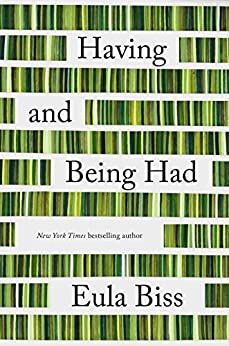More on this book
Community
Kindle Notes & Highlights
What does it say about capitalism, John asks, that we have money and want to spend it but we can’t find anything worth buying?
I’m filled with a strange unspecific desire. I want everything and nothing.
“The desire to consume is a kind of lust,”
In its earliest usage, consumption always implied destruction.
is a gift. Not to me, but to the future. The house is just passing through my hands. It’s not a purchase, it’s a husbandry.
Not having money is time consuming. There are hours spent at laundromats, hours at bus stops, hours at free clinics, hours at thrift stores, hours on the phone with the bank or the credit card company or the phone company over some fee, some little charge, some mistake.
What’s to blame is the comfort that a higher class status affords—the independence, the insularity, the security, the illusion of not needing other people.
Opportunity hoarding
So, she says, is this what we do now? We just keep earning money and replacing this stuff with better stuff?
I’m afraid to admit, even to myself, that I don’t want to work.
I realize with surprise that Scooby-Doo is all about capitalism. Every ghost, every mummy, every vampire turns out, in the end, to be someone trying to get rich.
The surest way to get a raise is not to work harder or teach more students, but to be offered a better job at another university.
Why is water so often a metaphor for money? Perhaps because we like to believe that our economic system is naturally occurring, not man-made.


